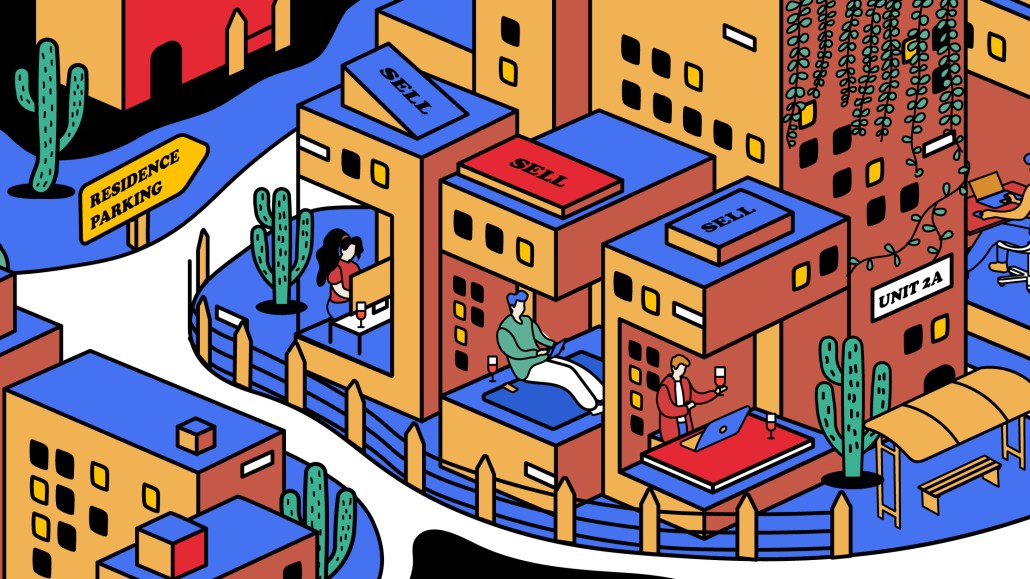Secure your place at the Digiday Media Buying Summit in Nashville, March 2-4
Brands are demanding more flexibility in their digital upfront negotiations with publishers

Ryan Pauley wants 2021 to be the year of upfronts for Vox Media.
Pauley, Vox Media’s chief revenue officer, has been on the hunt for more upfront deals with brands and holding companies ever since Vox Media’s acquisition of New York Media gave the digital native publisher more scale — 125 million monthly unique visitors, it said at the time — and more titles to offer advertisers last fall.
The strategy quickly bore fruit. Vox Media secured three times more annual partnerships with brands in 2020 than it did in 2019, Pauley said, though he did not share specific numbers.
And things are looking promising for next year. “We’re seeing [brand appetite] come back even stronger as we start to talk about 2021,” Pauley said.
But for Pauley and his peers at other large media companies, there’s a new wrinkle in this year’s upfront negotiations.
Many advertisers are asking for much greater levels of flexibility than in years past, essentially asking for the right to pause spending or not make firm commitments on spending, top revenue executives at five different publishers told Digiday.
The seeds of these requests were sown back in late March, when brands wrestled with a host of economic, operational and branding challenges caused by the spread of coronavirus, and ad spending ground to a halt. Many publishers cut their clients a break at the time, allowing brands to cancel deals at the last minute, pause campaigns for months at a time, or in some cases, just not honor the spending commitments they’d made earlier in the year as part of upfront agreements.
But while most publishers were sympathetic to their clients’ pleas, seeing 2020 was an extraordinary year with extraordinary circumstances, many are leery of ceding that control in an ongoing way.
Publishers’ upfront deals with advertisers and agencies are typically stuffed with special perks — reduced rates on sought-after inventory, early access to new ad products or packages, as well as white glove client service year-round — which make sense because the clients typically commit to spending millions of dollars a year with the publisher — and traditionally honor those commitments.
But take them away, or make them less binding, and what publishers are left with is a lot of ground given just to do business with their biggest advertisers, many of whom already push the limits on things like payment terms.
“You wonder, did the market get a taste of, ‘I can do anything I want’?” one revenue leader said.
For the past several years, brands and agencies have been trying to do more with fewer partners. That’s made it easier for the largest publishers to pursue bigger deals with brands and agency holding companies, particularly those that they’ve worked with for a while.
“They’re one of the only ways you can move nimbly with some sanity,” said Pete Spande, the chief revenue officer of Insider Inc, who said he favors enterprise deals that typically do not contain hard spend commitments. “From an agency side, a lot of these deals have gotten much more complex. It stands to reason to sort out what you can on an annual basis.”
But this year’s maelstrom of social unrest, public health tragedy, economic collapse and partisan rancor made those stable commitments hard to honor. Many advertisers cut their media planning cycles in half, forcing publisher and brand alike to work on smaller, quicker campaigns across the year, as brands grudgingly relied on a short-term approach.
So far, that short-term thinking hasn’t had much effect on brands’ appetite for big, long-term deals heading into 2021. The five revenue heads contacted for this story said that, at worst, their largest partners last year were talking about upfront commitments that were flat compared to this year.
“The ones that are above [$2 million] aren’t wavering,” said one chief revenue officer, who asked not to be identified to discuss ongoing negotiations.
But it seems to have changed the way advertisers think about their needs, and publishers see an opportunity to adapt.
“[Advertisers] need to be able to plan short-term but they have to have the confidence that partners can deliver what they need,” Pauley said. “The media buying process needs to evolve. It needs to anchor around the brand needs more than the network and media company needs.”
But, as tends to be the case in these matters, publishers may have little choice but to go along, whether they see opportunity or not.
“I don’t think it behooves the publisher to do a scorched earth thing when things go bad,” the first executive said. “It puts the publisher in the spot that’s a little lose-lose.”
More in Media

Media Briefing: Turning scraped content into paid assets — Amazon and Microsoft build AI marketplaces
Amazon plans an AI content marketplace to join Microsoft’s efforts and pay publishers — but it relies on AI com stop scraping for free.

Overheard at the Digiday AI Marketing Strategies event
Marketers, brands, and tech companies chat in-person at Digiday’s AI Marketing Strategies event about internal friction, how best to use AI tools, and more.

Digiday+ Research: Dow Jones, Business Insider and other publishers on AI-driven search
This report explores how publishers are navigating search as AI reshapes how people access information and how publishers monetize content.





